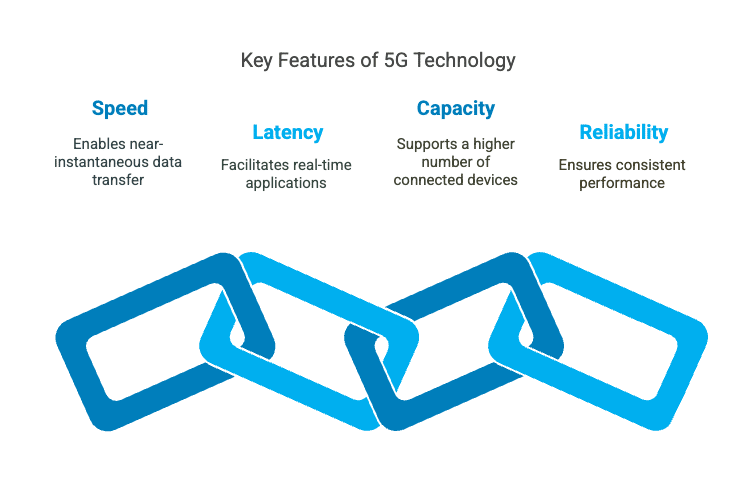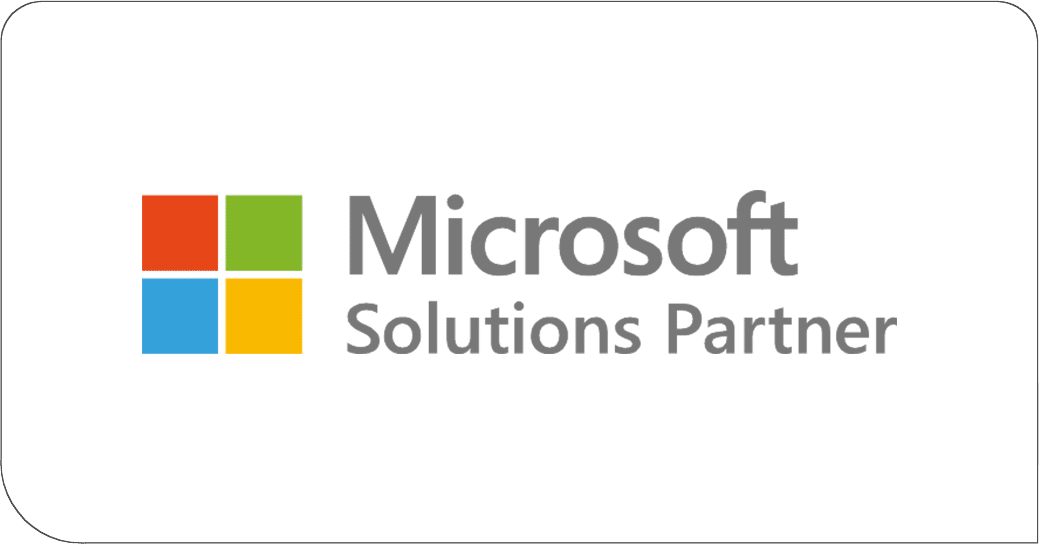5G technology is revolutionizing the way businesses operate, offering unprecedented speed, reliability, and wireless connectivity. As the next generation of mobile networks, 5G promises to transform business IT environments by enabling faster data transfer, supporting more connected devices, and improving overall efficiency.
What is 5G?
5G, or fifth-generation wireless technology, represents a significant leap from its predecessors, 3G and 4G. It is designed to deliver faster speeds, lower latency, and greater capacity for multiple devices.
Here are some key features that distinguish 5G from earlier generations:
- Speed: 5G wireless networks can achieve speeds up to 100 times faster than 4G, allowing for near-instantaneous data transfer and improved user experiences.
- Latency: The reduced latency of 5G, often below 1 millisecond, makes real-time applications like video conferencing, online gaming, and autonomous driving more feasible and efficient.
- Capacity: 5G can support a significantly higher number of connected devices per square kilometer, making it ideal for densely populated areas and Internet of Things (IoT) devices.
- Reliability: Enhanced reliability ensures consistent performance, which is critical for business operations that depend on stable and continuous connectivity.
In comparison to 3G, which focused on voice and basic data services, and 4G, which brought faster mobile internet and video streaming capabilities, 5G is a comprehensive upgrade that enables new possibilities for businesses.
From smart cities to advanced manufacturing, 5G’s impact is set to be far-reaching, driving innovation and productivity across various industries.

The Benefits of 5G for Business IT Environments
The advent of 5G services brings numerous advantages to business IT environments, enhancing download speeds, connectivity, and operational efficiency.
Enhanced Speed and Bandwidth
- Faster Data Transfer Rates: With speeds up to 100 times faster than 4G, 5G enables rapid data transfer, enhancing productivity and allowing for seamless streaming, downloads, and real-time applications.
- Increased Capacity: 5G supports a larger number of devices and applications simultaneously, making it ideal for businesses with high data demands and numerous connected devices.
Improved Connectivity and Reliability
- More Stable Connections: 5G provides robust and consistent connectivity, reducing the chances of dropped connections and ensuring business operations run smoothly.
- Reduced Latency: Lower latency enhances real-time applications like video conferencing, remote work, and interactive customer service tools, leading to more efficient communication and collaboration.
Support for Advanced Technologies
- IoT Integration: 5G’s ability to connect a vast number of devices supports the growth of IoT, enabling smart offices, automated workflows, and advanced data collection.
- AI and Machine Learning: Enhanced data processing capabilities and real-time data transmission allow businesses to leverage AI and machine learning for predictive analytics, automation, and personalized services.
- AR and VR Implementations: 5G supports high-bandwidth applications like augmented reality (AR) and virtual reality (VR), providing immersive experiences for training, marketing, and customer engagement.
Operational Efficiency
- Remote Work and Mobile Workforce Support: 5G enables employees to work efficiently from anywhere, with high-speed business internet access on mobile devices, improving flexibility and productivity
. - Streamlined Operations: Smart devices and sensors connected via 5G can automate routine tasks, monitor systems in real-time, and optimize resource management, leading to cost savings and operational efficiency.
The Challenges of 5G for Business IT Environments
While 5G offers significant benefits, its implementation comes with a set of challenges that businesses must navigate with careful planning and investment.
Infrastructure Costs
- Upgrading Existing Systems: Implementing 5G often requires significant investment in new hardware and upgrades to existing infrastructure, which can be costly and time-consuming.
- Deployment of New Hardware: Businesses may need to install new antennas, base stations, and other equipment to support 5G, further increasing costs and complexity.
Security Concerns
- Increased Attack Surfaces: The extensive connectivity provided by 5G can create more entry points for cyber-attacks, necessitating advanced security measures to protect sensitive data.
- Need for Advanced Cybersecurity Measures: Businesses must invest in robust cybersecurity frameworks, including encryption, network segmentation, and continuous monitoring to mitigate risks associated with 5G.
Compatibility Issues
- Integration with Legacy Systems: Ensuring compatibility between 5G technology and existing systems can be challenging, requiring careful planning and potentially additional investment in integration solutions.
- Ensuring All Devices and Applications are 5G-Ready: Businesses need to verify that their devices and applications are compatible with 5G, which may involve updates or replacements of older equipment.
Regulatory and Compliance
- Navigating Local and International Regulations: Different regions have varying regulations regarding 5G deployment, and businesses must navigate these rules to ensure compliance.
- Compliance with Industry Standards: Adhering to industry-specific standards and guidelines for 5G implementation is crucial to avoid legal issues and ensure smooth operations.
Future Prospects of 5G Technology
As 5G technology continues to evolve, its potential impact on business IT environments is immense. Future developments are likely to include even faster speeds, lower latency, and greater integration with emerging technologies such as AI, IoT, and edge computing.
Businesses can expect to see new opportunities in automation, data analytics, and immersive experiences like AR and VR. Additionally, 5G will play a critical role in enabling smart cities, advanced manufacturing, and remote healthcare, driving innovation across various sectors.
Preparing for these advancements now will ensure businesses remain competitive and can fully capitalize on the transformative power of 5G coverage.
Implement 5G into Your Business with Expert Assistance
The advantages of 5G technology presents a transformative opportunity for business IT environments, offering higher speed, connectivity, and support for advanced applications. However, the implementation of 5G comes with certain challenges that require careful planning in advance for a smooth rollout.
The connectivity experts at Davenport Group will guide you through the planning and implementation process, ensuring a seamless transition to 5G. Reach out to us and find out how 5G technology can support your business operations.

